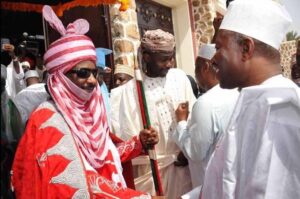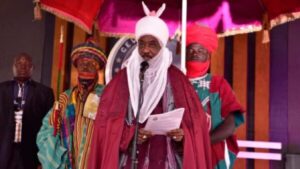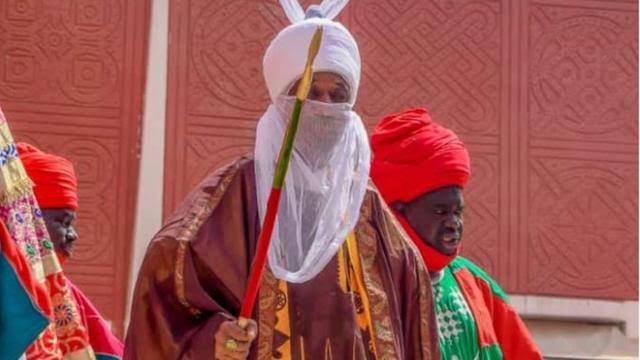In a significant political shift, the Kano State Emirs (Appointment and Deposition) Law, which was enacted by the Ganduje administration in 2019, has been repealed by the New Nigeria Peoples Party (NNPP)- controlled Kano House of Assembly. This law had established four additional emirates— Rano, Karaye, Gaya, and Bichi— alongside the existing Kano Emirate. The repealing of this law on May 23, 2024, marks a return to the traditional single emirate system, fundamentally altering the administrative and cultural landscape of Kano State.
According to the repealed bill, ” All offices created in the newly created five Emirates under the repealed principal law, dated 5th December, 2019 are hereby abrogated. All appointments made under the said repealed Principal Law dated 5th December, 2019 are hereby set aside. ” This means that the emirates and the offices established under Ganduje’ s law are nullified. As of the time of this report, Governor Abba Yusuf had not yet signed the bill into law, although sources suggest he is expected to do so imminently.
This development has significant implications for the traditional leadership structure in Kano. One prominent figure affected is Emir Sanusi, who is reportedly preparing for a return to the throne. Currently in Lagos, Sanusi is making arrangements for what is anticipated to be a grand return to his previous position. His return is expected to take place on Friday, highlighting the swift changes occurring in Kano’ s traditional leadership.

Meanwhile, Emir Aminu Ado Bayero, who succeeded Sanusi, is currently out of town. On Wednesday, Bayero paid a visit to Oba Sikiru Adetona, the Awujale of Ijebuland, in Ijebu- Ode. This visit was a courtesy call to celebrate the Awujale’ s 90th birthday and his 64th year on the throne. Bayero’ s absence from Kano at this critical juncture underscores the fluidity and uncertainty surrounding the emirate’ s future. His brother, Alhaji Nasiru Ado Bayero, the Emir of Bichi, is also reportedly out of Kano, having flown abroad according to unconfirmed reports. The whereabouts of the Emirs of Rano, Karaye, and Gaya remain unknown, adding to the speculation and tension within the state.
In a press briefing, the Majority Leader of the Kano House of Assembly, Lawal Hussaini Chediyar Yan Gurasa, who sponsored the repeal bill, declared that Kano currently has no emirs. He explained, ” This bill in its entirety has abrogated the establishment of 5 new Emirates in the state and reverted to the former status of a single emir in Kano which we inherited since the Jihad of Shehu Usman Dan Fodio. That’ s what the Bill is now all about and there was a plan to create an additional second- class Emir after this. ” He further noted that it is now up to the governor to appoint a new emir, a process that will involve the kingmakers once the governor signs the bill.
Senator Rabiu Musa Kwankwaso, the leader of the NNPP and a significant political figure in Kano, had hinted at these changes a month before Governor Yusuf took office. He stated that the issue of the emirates would be reviewed, emphasizing that the new administration would address both the beneficial and challenging legacies left by previous governments. Kwankwaso asserted, ” We campaigned and we are well- known in Nigeria, especially in Kano. What we showed the people is by God’ s grace all the good projects we started when we were in government. This governor (Abba Kabir Yusuf) and his team will pick up from where we left off. “

The repeal of the Kano State Emirs (Appointment and Deposition) Law represents a return to a more centralized traditional authority in Kano, reversing the decentralization efforts of the previous administration. This move is seen as a strategic alignment with traditional values and political consolidation under the NNPP. The immediate and long- term impacts of this decision will unfold as the governor proceeds with the process of appointing a new emir and the traditional leadership in Kano is restructured.




